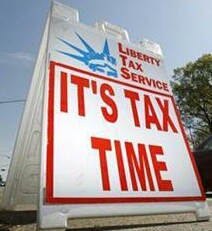Half Of Sunday, Collecting Lobby Funds
The American church, all of its faithful members, gathering each week, maybe a few times, is magnificent. By that, I mean the profit to societal benefit ratio is horribly skewed. Millions of poor and some wealthy members contribute to their pastors, week in, week out. Praising a singular deity is the focus of these gatherings, right? What about the power bill, fringe clergymen, groundskeepers and politics?
Every corporation has overhead. In the case of the church, there is always a hierarchy of administrators -or boards- who make the tough decisions concerning both the financial and philosophical matters of each church; something like a corporate board, only different because it is a non-profit organization -501c (3). The finances and philosophy are intrinsically bound. The philosophy and general message of the top dogs has to be delivered in a way that keeps people coming as well as bringing in new members. If they get it right, they can bask in wealth beyond what one might expect.
My goal is not to pick religion apart, as it has its own set of fantasies. I am powerless to convince anyone to believe in ghosts, much less giant boats. No, my goal is to point out exactly how much money is involved in this corporation, and what they are doing with it.
First, the numbers. The American church nets a yearly profit of $4 billion. It is funded by individual members, giving their obligatory dues of 10%. Those making 50k or above give an average of 1.4% over and above this amount, I would suppose that happens on the extra helpings of guilt heaped on them for budget shortfalls. This over-giving nets the church $135 billion per year. The most ironic part of this is how, no matter how bad the economy is, the church seems mostly unscathed. One figure I found was that in 2008, the pinnacle of the "great recession", the Southern Baptist Convention only lost around 1.3% of its annual profits. That should be a wash with the extra money that the more wealthy members pay in. Those are phenominal results considering 2.6 million jobs were lost in 2008; the worst since 1945. Their business model is enviable, if not magical.
One important factor to note is how the church remains a non-profit, un-taxed entity. The Supreme Court had something to do with it. The idea is that if the church is not taxed, then the government cannot have any oversight, therefore losing the abilty to infringe upon the freedom of religion, and the 1st Amendment. It is also said that if the government were to interfere, it could destroy the church. Being untaxed is said to be a buffer between church and state. That doesn't sound too far fetched. The only stipulation, and a completely unenforceable one, is that the preacher does not endorse a candidate for any public office, using biblical references. If they do, they lose their tex exempt status. Imagine the army of agents it would take to attend every service in every church.
First, I have heard specific candidates mentioned twice during my church days. Second, implied political agendas are common in many churches. It is generally assumed that the entire congregation belongs to the same political ideology, so it's not like there would be a whistle blower among them. Speaking out in opposition might lead to church discipline besides.
The Christian church in America is very involved in the federal government. They have to be when they spend $350 million per year lobbying Congress. Their main purpose for lobbying is obviously to push their agenda and attempt to sway public policy. That would feed so many hungry mouths. There are in excess of 1,000 employees, working directly for the religious agenda in Washington DC. The question that should be asked is how that can mean the two are separate. They aren't and never have been. The church, no matter the denomination has dictated public policy as much as the US military has used missionaries sent to foreign lands to scout new imperial colonization prospects.
To put that figure into perspective, The United Way, also a tax exempt non-profit spends $160,000 per year lobbying congress. The difference is that the voluntary donations are used specifically for helping the needy, and only petition the government to make laws better for the less fortunate. This is affective public policy influence.
That said, these are violations of the laws that the Supreme Court set up. There can be no separation if the church and the government are working toward the same goal. I'm sure a quick look at individual churches would yield many of them losing their -cop out- tax exempt status. After all, they are being funded by citizens who have already been taxed on the money they throw away to the church piggy banks. This is a tired argument, and because of that it has been pushed out of memory. This is much like a scandal intentionally being left out of the information cycle; or better, the government dictated mainstream media.
This fealty and sympathy toward a $4 billion profit making machine should be seen for what it is; another branch of right wing capitalism hiding behind an unfair and antiquated system of protection from tax accounability. It would make more sense for individuals to choose how their money is spent and quit giving it to a machine that perpetuates an indifferent, hierarchical system that mostly feeds itself. The only alternative to personal, critical thinking and choice is to allow these profits to be taxed. There are plenty of starving people who could use some help eating. Even more so, these government cut backs are making it worse.
Further reading and references:
http://www.latimes.com/la-oew-lynn-stanley23-2008sep23,0,4272340.story
https://www.opensecrets.org/lobby/clientsum.php?id=D000058892
Photo: http://www.reuters.com/article/2010/04/13/us-states-taxes-idUSTRE63C0FY20100413

Comments
Post a Comment